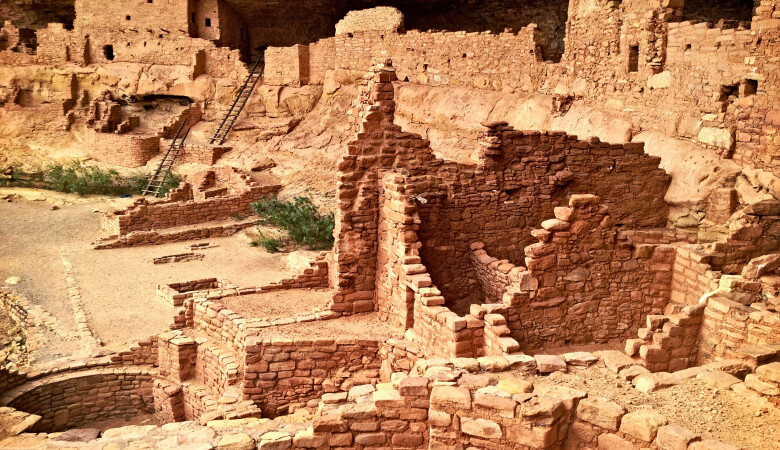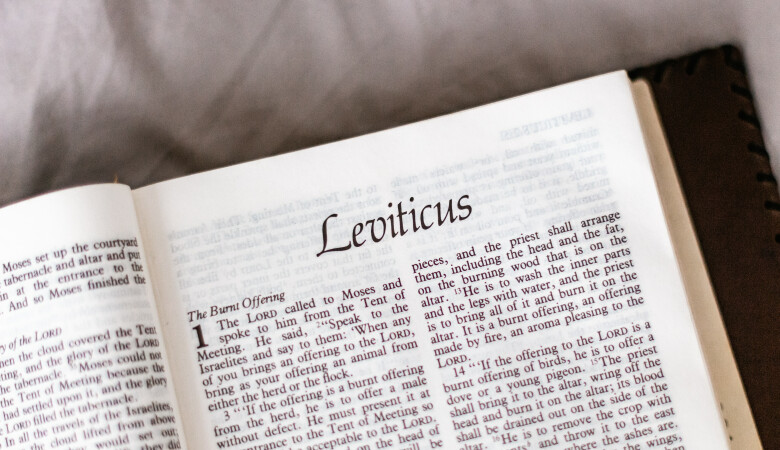Overview of Hebrews (Hebrews Sermon 1 of 74)
September 05, 2010 | Andy Davis
Hebrews 1:1-13:25
Book Overviews, New Covenant, Old Covenant, Warnings, Exhortations, Exaltation of Christ
We are coming this morning to a new book of the Bible and, as I frequently like to do, we are going to look in an overview fashion. My desire as we look at the Book of Hebrews, not just this morning but also in the weeks to come, is that we would have a better vision, a clearer vision of "our great salvation," as the writer calls it in Hebrews 2. On the morning of September 17th, 490 BC, some 10,000 Greeks stood assembled on a narrow plain 26 miles east of Athens ready to fight to the death even to the last man. Behind them, physically behind them, lay everything of value in this world to them: their homes, their families, their lifestyle, their beautiful city of Athens. In front of them lay a seemingly invincible army, a Persian army, 48,000 men who had landed the assembled forces of Darius I, the king of the Persian Empire. This vast invading force had landed from an awesome armada whose ships could still be seen there as they were preparing to fight the battle. They were there to wipe out the Greeks to the last man and plunder their homes. The narrow plain hemmed in on each side by boggy marshlands was chosen specifically by the Persians because it would help them in their use of chariots. And its name would become one of the most famous named battlefields of antiquity of the ancient world. Somehow, against all odds, the Greeks defeated the Persians that day, winning the Battle of Marathon, saving Greek civilization. After the battle, however, the danger was not completely over. The Persian fleet was still intact and still was able to sail down and get right near Athens and threaten that beloved city. And so in an amazing feat of strength, the Greek army marched at double time from that battlefield and somehow reached Athens ahead of the Persian ships. But ahead of them, they dispatched their best runner, Pheidippides, to cover the 26 miles with the message that they had won the battle but that danger was still coming. And so that man ran the 26 miles and thus invented a new race that we call the marathon. We think about it without knowing the battle, the history behind it; now you know and you can impress your friends with your knowledge, if you can rehearse the facts I just gave you.
But that's what it was and this man Pheidippides covered the 26 miles and legend has it that he gave the message and then died after having run the distance. Now, myself in high school, I was a distance runner. The farthest I ever ran was 25 kilometers, which is a little less than 16 miles. I thought I was going to die that day. I'll never forget that day. Way too long, and the idea of running another 10 miles beyond that, I don't have any idea of how people do that, and if I'm in the presence right now of someone who's completed a marathon, my hat's off to you. I don't know how you did it. But I believe that the Book of Hebrews, while not using the language or the term "marathon," presents the Christian life in that way. It's a marathon, friends. It requires tremendous endurance, painful suffering, and determination when things get very, very difficult not to give up and grow faint.
Hebrews 12:1-2 says, "Therefore, since we are surrounded by such a great cloud of witnesses, let us throw off everything that hinders and the sin that so easily entangles. And let us run with perseverance or endurance the race marked out before us. Let us fix our eyes on Jesus, the author and perfector of faith who for the joy set before Him endured the cross, despising its shame and sat down at the right hand of the throne of God." I think that's something we should do every single day of our lives. Let us fix our eyes on Jesus, amen. Let's think about Jesus and think about the race that He has set out in front of us to run. The Book of Hebrews speaks with a very serious tone about the need to persevere in the Christian life. Hebrews 10:36 says, "You need to persevere, so that when you have done the will of God, you will receive what He has promised." We have such a great salvation, as I already mentioned. It is a great salvation and the Book of Hebrews stands alone, I think, in the Bible in revealing to us the greatness of Jesus Christ as the mediator of the new covenant that saves our souls. It is a new and better covenant and by that covenant we are forgiven of our sins and we will be welcomed in the heaven. And Jesus is that superior mediator, the one who brings the covenant to us from God.
I. General Overview
Exhortations (paraklésis) and warning in Hebrews
He is a superior mediator. He's bringing that superior covenant and it results in a superior life, that's the theme of the Book of Hebrews. The Book of Hebrews, I think, also stands alone in giving us some of the most serious and severe warnings in the Christian life and many Christians go astray when they see the warnings in the Book of Hebrews. They do not understand the role that these warnings play in our salvation. Many Christians think they do not apply to them because we cannot lose our salvation, which we definitely cannot. But they do not realize how much we who are running this race of salvation need these warnings to keep us going in that race. And so I'm going to be preaching the Book of Hebrews as written to the church, written to us. We who claim to be Christians, we who have made a profession of faith in Christ, we need to heed these warnings.
Frankly, I think only the elect, only the true believers, heed these warnings. I think those who are only sham Christians do not heed the warnings and so they fall away. And so this fall, we are going to be looking carefully at a unique book of the Bible, and as we do, I think we are going to get a greater, a clearer sense of what Jesus has done for us on the cross. What is this covenant that saves us? What was the old covenant? What was its role? We are going to get a sense, ultimately, of the greatness of Jesus Christ, our Savior.
Now, I am going to begin at the end. We are going to be all over the place so do not despair of following me. I do not know, friends. Do the best you can but we are going to go across the scope of this great book. And I am going to begin at the end, when the author tells us what the book is. In Hebrews 13:22, he says, "I appeal to you, brothers, bear with my word of exhortation for I've written you only a brief letter.” By the way, this is what stood for a brief letter back in the antiquities, all right? They didn't have Twitter back then, I guess; now that's a brief letter. Okay? But this is what he said it was a brief letter, 300 verses. Bob read the section that I asked him to read. We were toying with him reading the whole book but we would still be at it right now. We would probably be around chapter four or five right now, so... But it would have been worth doing. It is a brief letter but it is a word of exhortation. That is what he calls it. The Greek word is paraklésis.
The basic concept, then, is that Christian salvation is a process. It is what I would call a marathon race, a journey that will only be completed when all the elect, all the children of God, are eternally perfect and have glorious resurrection bodies. While we are in this world we are in enemy territory, friends. We are in danger while we are in this world, grave danger. And we must keep making progress on our journey. We must continue to fight the good fight of faith. We have to keep running the race with endurance until we are done in this world and thus we must have exhortation along the way. The Greek word, as I said, is paraklésis in Hebrews 13:22. It is an interesting word; an interesting word of comfort, consolation and encouragement spoken to someone in difficulty, suffering, and distress to bring them consolation, giving them internal courage, and comfort to continue in the midst of their trial and their suffering.
But, it is also a word of exhortation, warning and admonition. Paraklésis is urging people to get moving, fight the good fight, keep running the race. So, therefore, you have a softer side of paraklésis and a harder side. One side knows, it seems, when to put an arm around you and weep with you. And one aspect of paraklésis knows when to be a drill instructor or a tough coach who is yelling at you while you are running up a hill for the tenth time to get you ready for the physically grueling trial you are about to have on the battlefield or in a football game. Both sides are part of that word, paraklésis. That is what this letter is.
The Holy Spirit is called "Our Paraklete." That is the noun form and we get it in the Gospel of John 14:26. It says, "But the counselor." NIV gives us, "The counselor, the Holy Spirit and the Father will send in my name, will teach you all things and will remind you of everything I have said to you." So paraklete, related to paraklésis, is translated in NIV "counselor" like a lawyer, someone called alongside to help you in a court trial. KJV, however, uses the "comforter." ESV uses the "helper." The basic idea, then, is the Holy Spirit lives with you, he'll be in you, he gives you moment by moment all the wise counsel, and the gentle comfort, and consolation, plus the stern rebukes, the hard warnings, the discipline that you need to finish the Christian life.
Now, the Book of Hebrews uses this word "encourage" a lot, this paraklésis idea a lot. In 3:13 it says, "Encourage one another daily, as long as it is called the day so that none of you be hardened by sin's deceitfulness." So you want that encouragement around you while you're dealing with sin's deceitfulness. Or again, Hebrews 10:25, which you heard Bob read, "Let us not give up meeting together as some are in the habit of doing, but let us encourage one another, and all the more as you see the day approaching." I really think that Christians need to learn what this word means so that we can have really good fellowship with each other. It is great to have a Labor Day picnic or some people over but let us, as Christians, let us really encourage each other. The Book of Hebrews, I think, helps us to do that so we can know what to do for each other.
Audience of the Book of Hebrews
Who is this book written to? The Book of Hebrews, who is the audience here? Well, throughout the book you are going to find an overwhelming appeal to Old Testament scripture, to Old Testament imagery; clearly, the author considers his audience very familiar with Jewish imagery, with the sacrificial system and with the Scriptures. He assumes a lot: the authority of the prophets, and of the Word of God, these kinds of things. The audience is very familiar with the history of the Old Testament and with the imagery, and the sacrificial system. And the opening statement in Hebrews 1:1, here we are at the beginning of the book now, way at the beginning. In Hebrews 1:1 it says, "In the past, God spoke to our forefathers through the prophets." Well, that I think identifies the audience as Jewish. And so as he is speaking about our forefathers he is saying the prophets, God sent the prophets to them. Well, God sent the prophets to the Jews. And furthermore, as you continue to read in chapter 2:1-4, these are people who had heard the gospel. They had seen miracles. They had heard the gospel from the messengers sent out by the apostles.
“And they...”, in chapter 6, it says, "Once been enlightened, have tasted the heavenly gift, have shared in the Holy Spirit, have tasted the goodness of the word of God, powers of the coming age." They have been involved in gospel ministry, they have been coming to church, they have been hearing the preaching, the explanation of New Testament doctrine, they have had all this. And they had made some kind of profession of faith in Christ, they were professors of faith in Christ. In Hebrews 3:1 it says, "Therefore, holy brothers who share in the heavenly calling, fix your thoughts on Jesus, the apostle and high priest whom we confess." Or again, 4:14, "Therefore since we have a great high priest who has gone through the heavens, Jesus the Son of God, let us hold firmly to the faith we profess." Hebrews 10:23, "Let us hold unswervingly to the hope we profess, for he who promises is faithful." So there's actually a number of times when the author refers to the fact they'd made a profession of faith in Christ.
So these are Jewish people who had heard the gospel, had been involved in church life, had made an outward confession or profession of faith in Christ, but there is a problem. They were going through severe persecution it seems. Some people had lost their property, some had been imprisoned, there was pressure being put on them by Satan through the world, and I think probably through Jewish friends and relatives and neighbors to give up their profession of faith in Christ. They were being squeezed by the world; they were being squeezed economically. They were living in a Jewish community, perhaps, and no one was buying their things or they could not get work or whatever.
And so they are facing poverty, they're going through a very, very hard time and there is pressure on these Jewish professors of faith in Christ to give up their confession of Jesus and just go back to the old covenant life. Turn their back on Jesus, just give up Jesus, just go back to Abraham, Isaac and Jacob, go back to Moses, go back to the law, go back to what you have always known, just give up on Jesus. So they were drifting away from Christ, developing hardened hearts, they were losing their courage, they were choosing not to come to church, staying away from church and they were going back to the old ways of Judaism. And the author clearly looks on this as a dire emergency for them. Dire emergency. So he is writing to them.
Author of the Book of Hebrews?
Now, who is the author? Now, I thought you were going to tell me who is... I said, who is the author? Now, some will call out Paul, and he is probably the most common choice in church history. However, the author never identifies himself. But because Paul always in other places identifies himself, doesn't mean he didn't write it. Those that are really experts at Greek style, which I am not, say that the style is very different than Paul's letters, a much higher, more polished style. I know this from personal experience: it's the hardest Greek to translate in the New Testament; just very, very high level, the vocabulary is at a high level. Paul could have done that -- it is possible. However, I do not think it’s a matter, an article of faith. No one should be offended if I do what I am planning on doing, saying Paul is not the author of Hebrews. It's safer, a little less risky, and if I get to heaven and it turned out to have been Paul, I think by the time I am in heaven, I’ll not need to apologize, but we’ll deal with that on judgment day and I’ll apologize to him for missing out that he wrote this. But we'll go with what Eusebius said that Origen said, "Who wrote the epistle in truth only God knows." And he lived just a few centuries after it was written, so I don't know. So I'm going to be saying "the author to Hebrews."
The superiority of Christ
Now, let's get to the real issue. What is the significance of this book? Why did he write it? What was he saying? What is the message? And that's really what's going to take our time the rest of this morning. But, what is the message of Hebrews? A.W. Pink said the central theme of Hebrews is the superiority of Christianity over Judaism; the superiority of Christianity over Judaism. Hebrews 7:22, "Because of this oath, Jesus has become the guarantee of a better covenant." There's lots of comparison in the book, something that's better, something that's superior, at a higher level.
Again, Hebrews 8:6, "The ministry Jesus has received is as superior to theirs as the covenant of which He is mediator is superior to the old one, and it's founded on better promises." So superior, superior, better. So, two things are being compared and what A.W. Pink says is Christianity is being compared to Judaism. New covenant is being compared to old covenant. Jesus is being compared to no Jesus. Fine. I think, more precisely, I would say it's a superiority of Christ over all other mediators that God has ever used or ever will use, including the prophets, Moses himself, and the angels, and, therefore, the superiority of the new covenant that Christ came to bring over the old covenant that He had fulfilled and superseded. And the kind of life that should come from that life, from that covenant, a life filled with faith, filled with courage, filled with good fruit, willing to face persecution, a life in which you would have your name in the hall of faith if we're extended.
So, that you face courageously the trials of your life and you don't shrink back away from them, but you boldly fulfill that new covenant spirit-filled life that God has given to you. That's what the book is about, a superior mediator bringing a superior covenant resulting in a superior life, that's what the Book of Hebrews is about. And so, we have beautifully the doctrine of Christ. What specifically were these Jewish professors of faith in Christ doing when they were going back to Judaism? They were specifically turning their backs on Jesus. That's what's going on, they were specifically looking Jesus in the face and turning their back on Jesus and walking away back to Moses, back to Abraham, Isaac and Jacob, back to the God of Moses and other patriarchs, turning their backs on Jesus. And so, therefore, right away in Hebrews 1, the author is going to give the superiority of Christ in every way; the glory of Christ, glorious descriptions of the person and work of Christ, they exalt the person of Christ the Son of God.
I'll quote those later in the message when I go over that section, but the perfected work of Christ, the mediator and high priest from God. John Calvin said this, "There is indeed no book in the holy scripture which speaks so clearly of the priesthood of Christ, which so highly exalts the virtue and dignity of that only true sacrifice which He offered by His death, which so abundantly deals with the use of ceremonies as well as their termination and in a word so fully explains that Christ is the end of the law." So, the glorious doctrine of Jesus Christ and, as we've mentioned, the fact that the old covenant is now obsolete. I remember when I was doing scripture memorization in the Book of Hebrews and came across in Hebrews 8 where it called the old covenant obsolete. And I thought, "I wouldn't have the courage to speak over the old covenant, this word obsolete," except that this book gives us the permission to do it.
It's obsolete, friends. Its time has passed. It's been fulfilled in Jesus and superseded by the new covenant, so it says in Hebrews 8, "If there had been nothing wrong with that first covenant, no place would have been sought for another." But God found fault with the people and said, "The time is coming," declares the Lord, "When I'll make a new covenant with the house of Israel, with the house of Judah." And by calling that covenant new, He's made the first one obsolete and what is obsolete and aging will soon pass away. Hebrews 8:13. It is by this book, then, especially we know that we are not to be offering animal sacrifices. So stop doing that. We are not to be offering animal sacrifices though they are clearly commanded all over the place in the Old Testament. But, we know that time is finished. That old covenant religion, which was so prominent, has been fulfilled in Christ and become obsolete. It is by this book that we do not establish in some new way Levitical priests to offer bulls and goats. We do not erect a new temple to replace the old one. We do not make three annual pilgrimages to that temple, to Jerusalem. Without the teachings of this book, we might rightly wonder if God still expected these things of us, perhaps as a memorial of Jesus. Now we are told to stop, the time is finished. It is by the Book of Hebrews that we see the completeness and perfection of the new covenant directly contrasted with the incompleteness and the imperfection of the old covenant. Here we will learn what is included in the new covenant, which the old covenant could never produce. I'm going to talk more about that in a few moments.
Old Covenant Explained
Fourthly, we also see the old covenant explained. Old covenant is explained. It is by the Book of Hebrews, more than any other book in the Bible, that you understand all of that stuff that was going on. The tabernacle, the ark of the covenant, the blood sacrifices, what it was all for? Why did God do it? Why was animal sacrifice so significant? A.W. Pink said, "Perhaps its chief distinctive value lies in its exposition of the Old Testament types." Here we are taught that the tabernacle and its furniture, the priesthood, and their service, the various sacrifices and offerings all pointed ahead to the person, offices and glories of the Lord Jesus. Of Israel's priests, it is said they serve a copy and a shadow of what is in heaven. The first tabernacle was merely a symbol for the present age. The ceremonial law was a shadow of good things to come. Melchizedek was a type of Christ, Isaac was a figure of Christ, and so on. The Book of Hebrews, then, we can see how perfectly the Old Testament's sacrificial system, animal sacrificial system, was getting ready for a very powerful presentation of the gospel in Jesus Christ.
It's really by Hebrews that I understood what to do with the animal sacrificial system and now it's become probably one of my favorite ways to share the gospel. And we'll talk about it, I think, probably multiple times as we study Hebrews. But, I learned from the book of Hebrews, concerning the animal sacrificial system, three lessons of that animal sacrificial system. All sin deserves a death penalty, the death penalty can be paid by a substitute, but the substitute cannot be an animal. And that just is like a cliffhanger where you're waiting for the final chapter, that's what the old covenant was meant to do. Okay, what's coming now? Jesus is coming. And so I saw with clarity from the Book of Hebrews, it was through the portal of the Book of Hebrews, when I was preaching in Genesis, when the little boy Isaac said to his father, "Here's wood and here's fire, but where is the lamb for the sacrifice?" And Abraham said, "God will provide for Himself the lamb." What a great answer that was. And how I saw that his question, that little boy's question on Mount Moriah, was really the summation question of the old covenant, "Where is the lamb?" "Can't be these animals, the blood of bulls and goats cannot take away sin." Oh, I just quoted Hebrews. They cannot take away sin. All right, where is the lamb? John the Baptist answered, remember, pointing at Jesus said, "Behold, the lamb of God takes away the sins of the world."
Those two verses just summed up old covenant, new covenant for me. "Where's the lamb, behold the lamb." There it is. And it was Hebrews that gave me that kind of clarity and now it is probably my favorite way to share the gospel with somebody who's familiar with Christian terminology, with perhaps a nominal Catholic or somebody who's aware of these things and understood that animal sacrifice was there but didn't know what it was about. I love doing this, because it brings us straight to the cross, dear friends, and it explains why Jesus died. All sin deserves a death penalty. The death penalty can be paid by a substitute, the substitute cannot be an animal, and, therefore, the substitute is Jesus. If you trust in Jesus, if you put your trust in Him, your death penalty for your sins will be paid in full, dear friends.
Warnings in the Book of Hebrews and God’s sovereignty
And I prayed this morning that God would bring someone here who needed to hear that. And you just heard the gospel, Jesus stood in your place, He shed His blood for you that your sins might be forgiven if you repent and believe, your death penalty has been paid in full, and you're going to heaven when you die, that is the gospel. It was Hebrews that gave me that kind of clarity. But along with that came an understanding of the dynamic of the Christian life. It is a dynamic thing. We are not done being saved, friends, we're on a journey. We call it in this church the internal journey, sanctification. We are not there yet, and we have got to have some warnings to keep us going. We've got to have that drill instructor that comes along at key moments and yells at us.
Now, let me tell you a story from my cross country days. I remember the summer between my sophomore and junior year, we were supposed to be running on an average between eight to 12 miles a day. I considered that somewhat in June, thought about it a little bit more in July and started to do it in August. Okay, if you know anything about distance running, it's too late. The season's probably gone at this point. I didn't realize that, but it became clear at our first formal practice when the captain of the team, who was one of the best runners in the state, took the team on a 14-mile hilly run. I will never forget that as long as I live. And I was laboring up this hill and the other good runners were already at the top of the hill. This guy turned around and came back down the hill to join me in my run up the hill. I will never forget that run as long as I live. I didn't think he was very nice that day. He wasn't being nice, he was yelling at me, you know. I don't know where he got off doing that, he was only a year ahead of me in school, but at any rate, there it was. But I've thought about that and I think there are times that we need to get yelled at in the Christian life and there are scriptures that'll do it. And Hebrews has a lot of those scriptures. And we need it. And what I've come to realize, I believe in God's sovereignty and salvation, I believe in predestination, I believe you can't lose, I believe once saved, always saved, I believe all those things. We'll talk about it plenty.
But I think the warnings help bring it about, and you need to listen to them, and take them seriously, not blow them off for any reason, theological or practical, don't say, "I don't need to hear that." Take it seriously. So in Hebrews 2:1, it says we must therefore pay more careful attention to what we've heard, so that we do not drift away, so don't drift away. Hebrews 3:12 says, "See to it, brothers, that none of you has a sinful unbelieving heart that turns away from the living God," so don't turn away. And then the worst of all, Hebrews 6: 4-6, "It is impossible for those who have once been enlightened, who have tasted the heavenly gift, who have shared in the Holy Spirit, who have tasted the goodness of the word of God and the powers of the coming age, if they fall away to be brought back again to repentance," because to their own loss, they're crucifying the Son of God all over again and subjecting Him to public disgrace. Don't drift away, don't turn away, don't fall away.
To say, "Well, if I believe in the sovereignty of God I don't think any of those things can happen to me." Don't think like that, friends. Don't think like that. The warnings were given to us. It goes beyond that and says, "Don't shrink away." We are not, Hebrews 10, "Of those who shrink back like the Jews did who refused to enter the promise land through unbelief." We're not of those who shrink back and are destroyed, but we are of those who believe and are saved, we cross the Jordan, we go on and fight the battles. So don't shrink away, don't stay away. Hebrews 10:25 says, "Let us not forsake the assembling of ourselves together," it is not a small thing to skip church, friends. We'll get to that in due time, but it's not a minor deal. It has an impact on the body of Christ and on you. And I understand, I'm not being legalistic here about it. I'm just saying it plays a role in your salvation. You do it once, you'll do it twice; do it twice, you'll do it four times. After a while it becomes a habit. It says, "As some are in the habit of doing." It's talking there about the habit of staying away from church, but how do you know it's not going to be a habit in you a year from now? Don't stay away and don't throw away your confidence. Hebrews 10:35, “don't throw away your confidence, it will be richly rewarded.” Sometimes you, through just willful sin, we just throw away our peace and are filling with the spirit, the fruit is spirit, throw it away like it's little or nothing. Don't throw away your confidence. It's good to have a healthy, strong assurance of salvation. Don't throw it away like it's cheap or nothing. And don't be carried away by false teachings. In Hebrews 13:9, "Don't be carried away by all kinds of strange teaching." Those are warnings to all of us. We've got to hear those. Don't drift away, don't turn away, don't fall away, don't shrink away, don't stay away, don't throw away anything of value. Warnings. And there are therefore exhortations to the church. Let's draw near to God, let's stand firm in our faith. Hebrews 4:16, "Let us then with confidence draw near to the throne of grace that we may receive mercy and find grace to help us in our time of need," in the passage that Bob read. Hebrews 10:22, "Let us draw near to God." You realize what a privilege that is? What a sweet privilege you're given in the new covenant.
II. Summary of the Major Sections
The Glorious Superiority of Jesus Christ (1:1-3:6)
The essence of the old covenant is thus far and no farther. You are the people of God, but you may not come in. There is a barrier, there's a wall, there's a curtain, you're not allowed in, you'll be struck dead if you go up in the holy mountain, that's old covenant. New covenant, there is a new and living way for us named Jesus and you are not just encouraged, you are actually commanded to draw near to God and come right close to Him and sit on His lap and pour out your heart to Him and be intimate with Almighty God through Jesus. Isn't that powerful? That's why the curtain in the temple was torn in two from top to bottom. And so we have these exhortations. Those are just some major themes in the Book of Hebrews. Let's look at some of the major sections and then we'll be done. We can't go into great detail, but the first major section is the glorious superiority of Jesus Christ. If you're there, just look at Hebrews 1:3, we'll preach about this next week, God willing, but Hebrews 1:3 says, "The Son is the radiance of God's glory and the exact representation of His being, sustaining all things by His powerful word. And after He had provided purification for sins, He sat down at the right hand of the majesty in heaven." Oh, what a sweet verse that is. The Son is the radiance of God's glory. We'll talk about it in detail next week, but we're just going to talk about the greatness and the majesty of Jesus. The application to these Jewish professors of faith in Christ is that they're just leaving Jesus out. They're not just leaving Jesus out, He is the radiance of God's glory. He's the exact representation of His being. How can you turn your back on Him? He sustains all things by His powerful word, including your body. How can you turn your back on Jesus? Impossible. So the greatness of Christ, He is the final word, God's final word to the human race. In the past, He spoke through the prophets. Now, He's speaking to us by Jesus. He is God's final word and is thus as the Son of God, He's superior to angels and to all creation, which He is upholding by His powerful word. At the right time, He'll roll it up and throw it away like an old garment and make a new one in its place. That's Jesus. How powerful is that? And so because of that, then, don't drift away from Jesus.
We see in chapter 2 the glorious superiority of Christ in this humanity, because the children, that's us, have flesh and blood. "He too," it says, "Shared in their humanity so that by His death He might destroy him who holds the power of death," that is the devil, "And free those who all their lives were held in slavery by their fear of death." Man, I would just like to go on Hebrews the rest of the day. Wouldn't that be awesome? I mean, that's incredible. Jesus by His death has freed you from being afraid of dying. Don't fear death. Don't fear death. And know that Satan's been destroyed. Satan's been... He just doesn't fully know it yet, how destroyed he is, but he has been destroyed by Jesus' death. Hallelujah. And Jesus took on a human body to do it, and therefore He is superior as a mediator. He's superior to Moses. The Jews revered Moses. They're gonna turn their backs, they're gonna go back to Moses, the leader of the people. The one who led the exodus. The author of Hebrews has to be careful here, and he is, Moses is a good man. Moses was a faithful servant of God. He did what he was told to do. He was given living words to pass on to us and he passed them on. Moses was faithful as a servant in God's house, but Christ is faithful as a son over God's house.
Warnings against Falling Away from God (3:7-6:20)
The superiority of Jesus to Moses is clearly established. The supremacy of Christ, and secondly, then, serious warnings about falling away from Him. Don't turn away from God, Hebrews 3:7 and 8. I'll tell you this, I probably don’t want to overstate now, but I think Hebrew 3:7 and 8 are probably the most important practical verses I've ever learned on the daily Christian Life. And it goes like this, quoting Psalm 95, "So as the Holy Spirit says, today if you hear His voice, do not harden your hearts." Unbelievably important. "As the Holy Spirit says," quote, and then comes Psalm 95. You know what that means? You can have an encounter with the Spirit of God every time you open the Bible. As a matter of fact, that's what it is. The Spirit is speaking to you when you read this book, and He's saying something to you now. He's talking to you and if you hear Him talk to you, don't harden your heart, but do what He tells you to do. Do you not see how powerfully important that is? Read the Bible, by the power of the Spirit, glean what He's saying to you and go do it, and don't harden your heart. Vital verses. It's a warning. How the author of the Hebrews looks back to Psalm 95, 1000 years before him, David writing Psalm 95 and then David looking back even further, four-and-a-half centuries back to the Exodus. They refused to enter the Promised Land. They hardened their hearts. They didn't do what God wanted them to do and they were destroyed. You see in Hebrews 3 and 4 an ongoing rumination over Psalm 95, the author is a meticulous worker over scripture. He works over passages. You're going to see that. He teaches us that meticulous study of the Bible is a good thing, but he's just saying, "Today, today, today. If you hear his voice today, if you hear him speaking don't harden your heart. All you ever have is today." And then he just steps aside and said, "You realize what I've been doing? I've just been thinking about Psalm 95."
Wow, is the word of God powerful. Wow, is the word of God living and active, sharper than any double-edged sword. It's able to penetrate even to the dividing of soul and spirit, joints and marrow. It judges the thoughts and attitudes of the heart. Nothing in all creation is hidden from God's sight. Everything is uncovered and laid bare before the eyes of Him to whom we must give an account. Oh, my goodness, you read that and it's like the word of God is an encounter with the living God. A sharp sword, it's bringing you to conviction, getting you ready for judgment day and, then as you're trembling, as you're thinking about that, then you are escorted by the ministry of Jesus, our new high priest, into the very presence of God. Since we have such a great high priest who has gone through the heavens, Jesus, the Son of God, let us hold firmly to that faith we profess. For we do not have a high priest who is unable to sympathize with our weaknesses, but we have one who's been tempted in every way, just as we are, yet was without sin. Let us therefore draw near to the throne of grace, so that we may receive mercy and find grace to help us in our time of need. Oh, how sweet are those verses. And so as you're trembling with the word of God and thinking about day, you have a mediator, you have a high priest. He is sinless and pure. His righteousness is yours. He's praying for you. He's interceding for you. His blood was shed for you, let's draw near to God. And so Jesus, then, as high priest is introduced to us. The supremacy of Christ as the high priest and then because of that then the author just takes a break, he wants to talk about Melchizedek. I always find this interesting, he says, "I have a lot to tell you about Melchizedek, but it's hard to explain because you're slow to learn." He just gives them a spanking right there in the middle. It's like, what is that? By now you should be teachers, you guys should be spreading the word everywhere and look at you, you're like babies. You need milk, not solid food. I'd like to give you some solid food, that whole Melchizedek thing, we'll get to it in chapter 7, but I can't, because you're slow to learn and I'm worried about you. And that's when he gives the devastating chapter 6 that causes so many people so much struggle. If you fall away, you can't come back. It's impossible to renew you to repentance. You drink deeply from this fountain, you swim in these waters for a while, you walk away, you're not coming back, friends. You're not coming back. You've heard it all, there's nothing new to say to you. That should make you afraid. Stay here. You know, 1 John said, "They went out from us because they weren't really of us." And so that's why the author gives that warning. But he says, "Even though we speak like this, dear friends, we're confident of better things in your case, things that accompany salvation." That's what he's saying. So he gives them a comforting word, but he's given them that warning.
The Glorious Superiority of the New Covenant over the Old Covenant (7:1-10:39)
And so we have this glorious supremacy, the superiority of the new covenant to the old covenant in chapters 7 through 10. We have this man Melchizedek. He is an interesting figure, who pops up in the middle of the Genesis account after the defeat of the kings. And Abraham gives him a tenth of all of his plunder and then he disappears again. Who is this man, this Melchizedek? But he doesn't disappear forever. He reappears when the psalmist, David, writes in Psalm 10, "The Lord has sworn and will not change His mind, you are a priest forever in the order of Melchizedek." Who is Melchizedek? Well, he's a combination priest and king. A priest king, a king priest. And that's the very thing that was precluded in the old covenant. Any king, who tried to offer sacrifices, generally lost their life or their kingdom. Couldn't do it, but now in Jesus there is someone from the tribe of Judah, king, descended from David, but he is also a priest and so in order to do that you have to change the rules of the game. The old covenant would not have permitted Jesus to be a priest. So we have to have a new covenant to have the better priesthood, and we do. We have a new covenant; we have a new order of priesthood, an order of Melchizedek, where out of that he ministers. The Son of God, living forever, not in one of these dying sons of Aaron, that die and then the next one comes along, and then he dies and then the next one comes along. One who is weak and sinful, and has to offer sacrifices for his own sins as well as for the sins of the people. We don't have anyone like that. We have a pure, spotless, holy Son of God who lives forever as our high priest. And He's up there in the heavens and He's ministering His blood at the right hand of God, and He is interceding for you, and He's praying for you so that you may receive your salvation to the uttermost, right to the end. He is interceding for you. And He'll go on praying for you and the Father hears the prayers of the Son. And so therefore, that's the superior ministry that Jesus gives. And His sacrifice, His own blood, offered Himself, is better than any of those animals and we already touched on this. The animals could not bring you forgiveness. The animal blood could not save you, so Jesus had to come. And He offered his blood, not over and over, many, many, many, many times, but once for all. Once for all. And in the midst of this comes glorious chapter 8. Just look there for a minute, 8:10-12, which is the essence of the new covenant, how it's better than the old covenant. Oh, I just love this, it's actually in the Book of Hebrews twice, it's also in chapter 10. This quote from Jeremiah 31:33-34, "This is the covenant I will make with the house of Israel after that time, declares the Lord. I will put my laws in their minds and I will write them on their hearts. I will be their God and they will be my people. No longer will a man teach his neighbor or a man his brother saying, 'Know the Lord,' for they will all know me, from the least of them to the greatest. For I will forgive their wickedness and remember their sins no more."
You have three glorious elements of the new covenant that the old covenant didn't have. Let's take them in reverse order. Complete forgiveness of sins. All of your sins, past, present, and future, can be, will be, completely forgiven by the blood of Jesus. Old covenant couldn't do it. All it could ever do is show you what your sins were, but it could not forgive them. Not a single person is in heaven right now because of the ministrations of the old covenant. Abraham, Isaac, Jacob, David, all of those, they're in heaven because of what Jesus did. Amen. The old covenant doesn't save anybody, never has. And so I will forgive their wickedness, and I will remember their sins no more, first. Secondly, I will put my laws in their minds and I'll write them on their hearts. It's a transformed nature. He's changing your heart, He's taking out that heart of stone and giving the heart of flesh. He is putting God's word inside you, so that you yearn to obey the law. As it says, even in that sad Romans 7, the author Paul there says, "In my heart, in my mind, I delight in God's law." How did that happen? God did that. Even though we still struggle with sin, we delight in God's law. We have a new nature. And then thirdly, "I will be their God and they will be my people." Based on the forgiveness of sins, based on that transformed nature, He has adopted us and we are His guard and we don't need anyone to tell us, "Know the lord," we will all know Him, from the least to the greatest, all the way up to face to face fellowship at the throne of God in heaven. That's what the new covenant can do for you, friends, old covenant can't do those three things. And so old covenant was just a type, it was a shadow, it was a symbol, the tabernacle, the blood, all that just pointing ahead to the real ministry, the ministry of Jesus.
And therefore we are exhorted, since we have confidence to enter the most holy place, to get right into the holy of holies with God, we have confidence to enter the most holy place. Let us then draw near to God. Do you feel distant from God today? Did you come in here today feeling distant? Do you feel guilty for sins? Do you feel like you're trapped in some pattern you can't get out of? Friend, if you're a Christian you are not a slave to sin, you're not trapped, you're forgiven. You've been given a new nature, you've been set free from sin and death. So draw near to God, it's the devil telling you you don't have a right to come in the into the fellowship, you're commanded to come close and to draw near into the very holy of holies. But if you choose not to, Hebrews 10 also has not only some of the sweetest enticements, but the most severe warnings. "How much more severely do you think a man deserves to be punished, who has trampled the Son of God underfoot," that's what he says. Our God is a consuming fire. So there's the sweet enticement and then there's the severe warning, both in the same chapter.
The Life of Faith….so-called “Hall of Faith” (11:1-40)
And then you have Chapter 11, the hall of faith. Faith is to find the assurance of things hoped for, the conviction of things not seen, the importance of faith has told us that without faith it's impossible to please God. Because anyone who comes to Him must believe that He exists and that He rewards those who earnestly seek Him. And then you have whole examples of the life of faith, from Abel offering up his sacrifice, Enoch who walked with God, Noah who built an ark, Abraham, Isaac and Jacob, these patriarchs who were living in tents but looking ahead to a city with foundations, whose builder and maker is God, right through Moses, Moses' parents, then Moses who lived by faith, and all of these heroes of faith; even the judges, some of the judges, Samson is mentioned, what a surprise, but there he is. Samson mentioned, right? In the hall of faith, a man of faith, who trusted God, who conquered kingdoms. It says, "These heroes of faith, who women received back their dead raised to life again." People, men and women of faith, and so clearly the author is saying, "Okay, you've got this cloud of witnesses around you, then let's run the race like they did." Let's run the race with endurance, filled with faith.
God Working in Us a Life Pleasing to Him (12:1-13:25)
And if you should falter, just know that your heavenly Father will just give you a spanking, that's all. He'll just discipline you, because He punishes every child that he receives and scourges them, but He's never going to let you go. He's got hold of you now, you're a child, the son and daughter of the living God. And if you need a spanking, He'll give you one. He may just warn you, He may convict you, He may do other things, but He's not going to let you go, and so therefore live for His glory, because we're not coming to that old covenant mountain and shaking in blood and thunder and lightning, but we're coming to the New Jerusalem, Mt Zion, the heavenly kingdom where we get to see God. We're surrounded by spirits of righteous men made perfect and angels and heavenly array, that's where we're going, and so, therefore, let's live a life of faith to the glory of God.
Friends, that's the best I can do in 45 minutes summarizing the whole book. Thankfully, we're going to have time to go back over it. The central lesson is this. Jesus, the Son of God, the superior mediator, has brought to us a covenant that saves our souls, and if you allow by faith Jesus to minister that to you, it's going to pour out in a whole new kind of living, and part of that is going to be running a race with endurance, it's going to be hard to run, and we are here in this body of Christ to help you run it and you help each other, we help each other as we run this race and why? So that God can be glorified in our full salvation. Close with me in prayer.






























